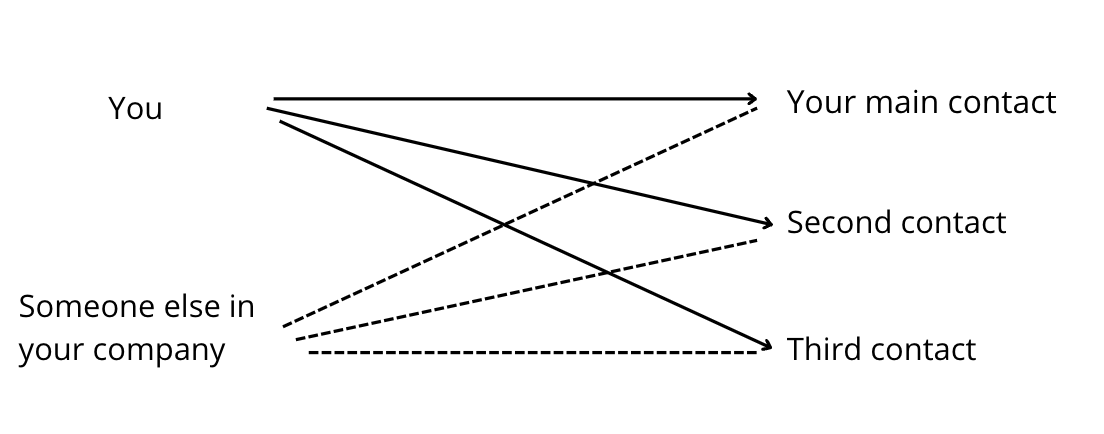
Have you a process in place when you lose a customer/client?
We all lose customers and it is part of the natural cycle of business but it is important to understand why it happened as it may prevent further losses down the line. What I tend to find when working with clients is that they are too busy chasing new business to follow up on the lost business which can be counter productive. You maybe in a business where there is a quick churn or perhaps you supply a one off service or product and there are online surveys that can capture this information as it is happening but I want to concentrate on the longer term relationships in this article.
Let’s look at the reasons you lost that business and what you can learn. The strength of your relationship with people in the company will help you minimise losses once you listen to what is being said and take action.
- Company went out of business
- Change in personnel
- Your product/service is no longer relevant
- A competitor has taken your place
- Missed deadlines
- Poor quality control on your part
Company went out of business – there is not a lot you can do about this but let me ask the following;
Did you have advanced warning about the situation? In other words did your contact in the company let you know this was happening or was it sprung on everybody suddenly? If it was sudden then there was nothing you could do and if you got advanced warning hopefully it minimised any potential losses. Do you know where your contact and other key people are moving, have you got their personal contact details and have you a system in place to track them. They are a source of new business when they settle in to their new jobs.
Change in personnel – this is a common situation where you have built up a relationship with a person in the company and everything runs smoothly until for one reason or another they move out of that position or leave the company. We spoke about the opportunity above but what have you done to retain this client. Have you more than one contact and just as importantly is there someone else in your organisation who has a relationship with your customer contacts. If you were to draw a quick sketch of your company’s relationship with a customer would it look like this? If there are multiple contact points on both sides of the relationship it prevents the total loss of business because only one person knew you and now they are gone.

Your product or service is no longer relevant – has this been coming for some time or one day the customer moved to something that has now made you irrelevant? We are back to relationships and the importance of meeting your customers on site frequently. Have a chat with the receptionist, the warehouse manager, the production manager or whoever can give you inside information. Speaking with staff at all levels will build rapport and asking the right question will give you more information than you imagine including intel on your competitors. How often do you ask your customers about what you do for them, what am I doing well, what could I do better?
A competitor has taken your place – this is similar to the last paragraph and reenforces the value of relationships and having information that allows you to keep your offering in tune with your customers needs.
Missed deadlines – this applies as much to quotations as it does to delivery of your product or service. We live in a world of instant gratification and a request for a quotation suggests they have a requirement today but that may move down the pecking order after a day or two or may be of no interest to them as they have received a response from a competitor and placed the order. Not acknowledging or responding to a request for quotation may remove you from their list. How do you monitor this side of the business?
You may be delivering your product or service late on a regular basis. You may not even be contacted about this issue by the customer and it only becomes apparent when they change supplier. The same may happen if there is a reduction in the quality you deliver but again good communications with trusted contacts in the company will help you.
In summary, make sure that you have more than one contact in each of your clients companies and build on those relationships. Keep in close contact and make sure that you speak with people at all levels of the organisation whenever the opportunity arises.
If someone, moves on make sure you have their new contact details so that you can avail of any opportunities that may arise. If you lose a customer make sure you find out why and make the necessary corrections as it may be impacting on others. Once completed you may at some future stage contact those clients you lost and perhaps a new relationship will develop.
Do not take relationships for granted as the rapidly changing landscape may make them redundant. Up to date information is the key to retaining customers and unless you have a proactive approach you may discover too late that you and your company have been sidelined which could prove to be very costly.
